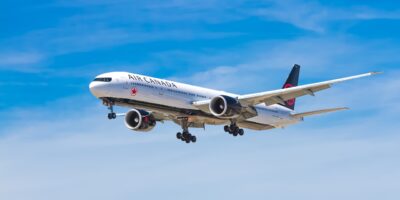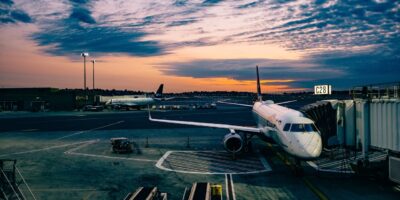PIA Flight Attendant
PIA Flight Attendant
Being a flight attendant is a demanding yet rewarding career. Working for Pakistan International Airlines (PIA) comes with its own unique set of challenges and opportunities. Understanding the role, requirements, and experiences can provide a comprehensive view of what it’s like to be a flight attendant with PIA.

Job Description
Flight attendants are responsible for ensuring passenger safety and comfort on board. They conduct safety checks, demonstrate the use of safety equipment, and ensure that all passengers are following airline regulations. Serving food and beverages, answering passenger queries, and providing first aid when necessary are also part of the job.
PIA flight attendants often operate on both domestic and international flights. This requires them to adapt to different time zones, climates, and cultures. Flexibility and adaptability are crucial traits for the role.
Qualifications and Training
Prospective flight attendants must meet several qualifications. A minimum education level, usually up to high school or its equivalent, is required. Proficiency in English and Urdu is essential, and knowledge of additional languages can be a plus. Candidates also need to meet certain physical requirements, such as height and general health standards.
The training process is intensive. PIA provides comprehensive training programs that cover all aspects of the job. This includes safety procedures, customer service, and emergency response. Trainees undergo classroom instruction, practical training, and simulation exercises. Upon successful completion, they are ready to serve on board PIA flights.
Work Environment
Working as a flight attendant means spending significant time away from home. Flight schedules can be unpredictable, and shifts often include nights, weekends, and holidays. Despite the irregular hours, many flight attendants enjoy the opportunity to travel and experience different cultures.
The cabin crew works closely together, fostering a sense of camaraderie. They share responsibilities and support each other to ensure smooth operations. Teamwork is a critical component of the job.
Challenges
One of the biggest challenges is handling difficult passengers. Effective communication and conflict resolution skills are essential. Flight attendants need to remain calm and composed, especially during emergencies. They must be prepared to handle medical situations and other crises that can occur during flights.
The physical demands of the job can also be taxing. Long hours on your feet, dealing with turbulence, and adjusting to different time zones can take a toll. Maintaining a healthy lifestyle and managing stress are vital for long-term success in the career.
Rewards
Despite the challenges, being a flight attendant with PIA offers many rewards. The opportunity to travel the world is a significant perk. Flight attendants often visit destinations they might not otherwise see. Additionally, the job provides a sense of accomplishment and pride. Serving hundreds of passengers and ensuring their safety is a responsiblity flight attendants take seriously.
Compensation and benefits are also attractive. PIA offers competitive salaries, travel allowances, and health insurance. Employees often enjoy discounts on personal travel and other perks associated with the airline industry.
Personal Experiences
Many PIA flight attendants share that the job has expanded their horizons. Meeting people from different cultures, learning new languages, and experiencing various cuisines are some of the highlights. These experiences enrich their personal and professional lives.
Stories from the skies abound. From dealing with famous personalities to witnessing breathtaking views, flight attendants have a treasure trove of anecdotes. The job offers a unique perspective on the world, one that not many people get to experience.
Career Growth
There are ample opportunities for career advancement. Experienced flight attendants can move up to senior positions, such as lead flight attendant or in-flight supervisor. Some transition to training roles, sharing their knowledge and experience with new recruits.
PIA also offers career growth beyond the cabin crew. Many flight attendants move into administrative or management positions within the airline. The skills and experience gained as a flight attendant are valuable in various other roles in the aviation industry.
Application Process
To become a PIA flight attendant, applicants must go through a stringent selection process. This begins with submitting an application, followed by an initial screening. Successful candidates are then invited for interviews, where they are assessed on various skills, including communication, problem-solving, and customer service.
Medical examinations and background checks are also part of the process. Candidates who pass these stages are enrolled in the training program. The entire process ensures that only the most capable and dedicated individuals join the ranks of PIA flight attendants.
Public Perception and Media Representation
Flight attendants often appear glamorized in the media. While the job does have its glamorous moments, the reality involves hard work and dedication. PIA flight attendants work tirelessly behind the scenes to ensure passenger safety and comfort. Their professionalism and commitment are core to the airline’s reputation.
The public perception of flight attendants is generally positive. They are seen as helpful and knowledgeable, always ready to assist passengers. However, it’s essential to recognize the effort they put into their roles and the challenges they face daily.
COVID-19 Impact
The pandemic significantly impacted the aviation industry. Flight attendants had to adapt to new safety protocols and procedures. Wearing masks, sanitizing surfaces, and managing social distancing on flights became part of their routine.
PIA implemented stringent measures to ensure the safety of both passengers and crew. Flight attendants played a crucial role in maintaining these standards. Their resilience and adaptability were commendable during these challenging times.
The Future
The role of flight attendants is evolving. Advances in technology and changes in passenger expectations are shaping the future of air travel. PIA is committed to staying ahead of these changes, continually updating training programs and protocols.
Flight attendants will continue to play a vital role in ensuring safety and comfort on flights. Their ability to adapt and their dedication to service will remain key factors in the success of airlines like PIA.



